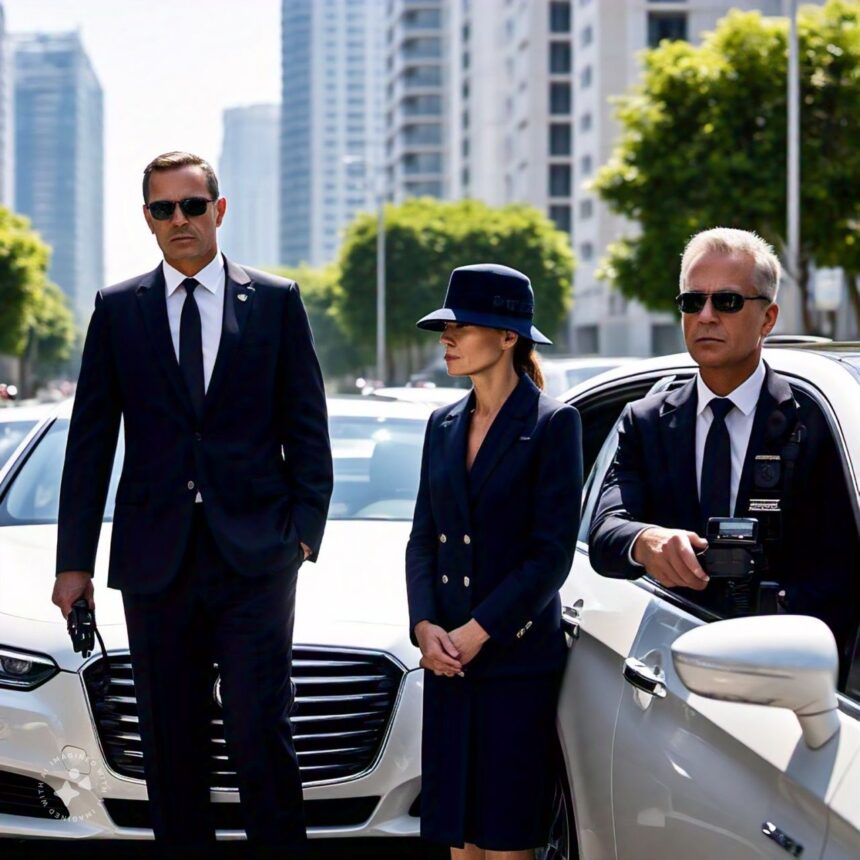How Security Guards Support VIP and Executive Protection
When it comes to ensuring the safety and well-being of VIPs and executives, professional security guards play an essential role. Their expertise in protection, situational awareness, and proactive threat management helps mitigate risks and maintain a secure environment. In this post, we will explore how security guards contribute to VIP and executive protection, ensuring that high-profile individuals stay safe in various environments.
1. The Role of Security Guards in Executive Protection
Security guards are integral to executive protection by offering personalized safety measures tailored to the needs of VIPs. Their primary responsibility is to assess potential risks and create a secure environment by monitoring and controlling access points. By leveraging their expertise, security guards ensure the protection of executives from various threats, ranging from physical assaults to cyber risks. Learn more about security services on Security Guard Services.
2. Risk Assessment and Threat Identification
Before a security detail is put in place, security guards conduct a thorough risk assessment to identify potential threats. This involves evaluating the environment, assessing vulnerabilities, and analyzing any risks that could jeopardize the safety of the individual. This proactive approach allows security teams to anticipate and neutralize potential dangers before they escalate.
3. Maintaining Surveillance and Monitoring
Constant surveillance is a key component of executive protection. Security guards are responsible for monitoring the area using advanced security technology such as CCTV cameras, motion sensors, and alarm systems. Continuous monitoring ensures that any suspicious activity is detected early, allowing for a swift response to potential threats.
4. Escorting VIPs Safely
One of the primary functions of security guards is to safely escort VIPs and executives to and from locations. Whether traveling to meetings, events, or airports, security guards ensure that the route is secure and free from potential dangers. They provide a shield of protection during transit, preventing any interruptions or security breaches.
5. Managing Access Control
Limiting access to VIPs is another critical responsibility of security guards. They manage entry points at various venues and ensure that only authorized individuals can approach the executive. This includes verifying identification, conducting background checks on visitors, and utilizing technology to enhance access control, ensuring the executive’s safety at all times.
6. Planning and Executing Security Protocols
Security guards are trained to design and implement security protocols for specific events or scenarios. This includes route planning, coordinating with local law enforcement, and ensuring that the executive’s surroundings are secure. Detailed plans allow security teams to execute effective responses to potential threats and mitigate risks efficiently.
7. Handling Crowd Control
Crowd control is another critical area of responsibility, especially in public events or conferences where VIPs may be present. Security guards manage the crowd by maintaining order and preventing any unruly behavior that could threaten the safety of executives. They are trained to handle large groups while ensuring minimal disruption to the event.
8. Discreet and Professional Protection
While protecting high-profile individuals, security guards must also maintain a low profile. Discreet protection ensures that the presence of security does not draw attention or create unnecessary concern among the public. Security teams strike a balance between visibility and subtlety, ensuring that VIPs feel safe without attracting undue attention.
9. Emergency Response and Evacuation Plans
Security guards are trained to handle emergencies and have the skills to respond rapidly to unforeseen situations. Whether it’s an active threat or a medical emergency, they are equipped with the knowledge to act quickly and decisively. Part of their responsibility includes creating and executing evacuation plans that ensure the safe removal of VIPs from dangerous situations.
10. Collaboration with Local Law Enforcement
In some cases, security guards collaborate with local law enforcement to enhance the security of VIPs. By working with police and other emergency responders, security teams ensure that all potential threats are addressed swiftly and efficiently. This collaboration also helps in the event of a crisis, where additional resources and expertise are required.
11. Protecting from Cyber Threats
In today’s digital age, cyber threats are a growing concern for high-profile individuals. Security guards are trained to identify and mitigate risks related to digital security. This includes monitoring online activity, preventing hacking attempts, and ensuring that communication systems are secure, protecting the VIP’s private information from cyber threats.
12. Personalizing Security Services for Each Client
VIP and executive protection is not one-size-fits-all. Security guards work with each client to develop personalized protection plans based on their specific needs. Whether an individual requires high-profile protection for a public appearance or discreet protection during private meetings, security services are tailored to meet the exact demands of each client.
13. Training and Expertise of Security Guards
The training and expertise of security guards are crucial in providing effective protection. Security personnel undergo rigorous training in self-defense, surveillance, emergency response, and crisis management. Their ability to assess threats, plan security strategies, and execute protocols ensures that VIPs receive the highest level of protection.
14. The Importance of Continuous Communication
Effective communication between security guards and their clients is vital. Constant communication ensures that the security team is aware of any changes in the schedule or location, allowing them to adapt their approach as needed. This ongoing dialogue also helps ensure that VIPs feel comfortable and confident in the security measures in place.
15. Conclusion: The Value of Professional Security Guards
Security guards play an indispensable role in ensuring the safety of VIPs and executives. By offering a combination of physical protection, risk assessment, emergency response, and crowd management, they help mitigate risks and create a secure environment. For those looking for expert security services, Security Guard Services provides reliable and professional protection for VIPs, executives, and high-profile individuals for more blog .
Frequently Asked Questions (FAQs)
Q1: What types of security services do guards provide for VIPs?
Security guards offer personalized protection, including escorting VIPs, risk assessments, monitoring surveillance, and managing access control to ensure safety at all times.
Q2: How do security guards manage potential threats?
Security guards proactively assess risks, monitor for suspicious activity, and create detailed security plans to handle any emergencies or threats.
Q3: Can security guards protect against cyber threats?
Yes, security guards are trained to identify and mitigate digital risks, including hacking attempts and cyber threats, ensuring the VIP’s information is secure.
Q4: Do security guards collaborate with law enforcement?
Yes, security guards often work closely with local law enforcement to ensure the safety of VIPs, especially in high-risk situations or public events.
Q5: How do security guards handle crowd control?
Security guards manage large crowds by maintaining order, preventing disruptions, and ensuring that VIPs remain safe during public appearances or events.
Q6: Why is personalized security important for VIPs?
Personalized security ensures that the protection plan is tailored to the specific needs and circumstances of the VIP, providing the highest level of safety.








